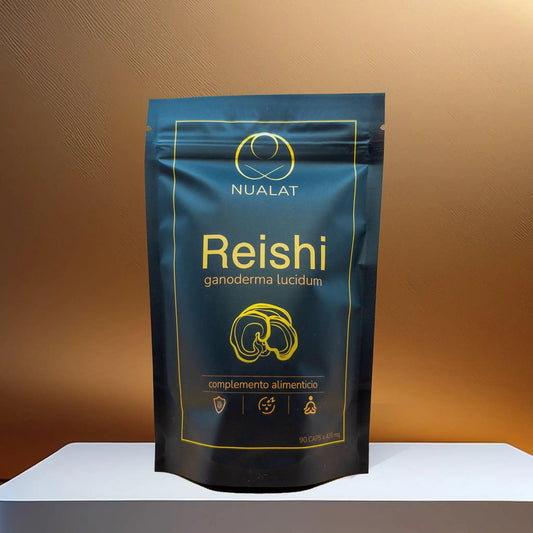
Silent stress: How it affects you without you noticing and what you can do about it
Share
Are you feeling exhausted for no apparent reason? You could be living with unseen, but accumulating, stress.
We live fast. We jump from one meeting to the next, check messages while walking, and end the day feeling like we're not accomplishing anything. And the worst part is, we've normalized it.
This constant rhythm comes at a price. Although it doesn't always manifest itself in crises or anxiety attacks, chronic or "silent" stress can be affecting your body without you realizing it... until fatigue, irritability, or health problems appear.
In this article, we explain how this type of stress works, how it affects your body in the short and long term, and what you can do to recover naturally.
What is silent stress?
Stress doesn't always present itself in obvious ways. Sometimes it's not just screaming or crying, but persistent fatigue, insomnia, digestive bloating, or even dull skin. All of these can be the result of an overstimulated nervous system.
This type of stress is known as silent stress because it operates in the background: we don't see it, but it affects how your body sleeps, how it digests, how it reacts, how it defends itself.
Effects of stress on your health
In the short term, stress stimulates the release of cortisol and adrenaline, which can help you perform better… for a while. But if this cycle isn't broken, the effects begin to show: trouble sleeping, increased appetite (or loss of it), irritability, muscle tension, or indigestion.
In the medium and long term, chronic stress can:
- Weaken your immune system.
- Increase overall inflammation in the body.
- Make it difficult to concentrate and remember.
- Alter your hormonal health (menstrual cycles, libido, etc.).
- Accelerate cellular aging and skin deterioration.
And although it may seem subtle, this accumulated wear and tear can affect your well-being on many levels.
What can you do to reduce the impact of stress?
The key is to restore the body's ability to self-regulate. This requires real rest, a nutrient-rich diet, contact with nature, gentle movement, and a break from screens and constant demands.
There are also natural tools that can help you better manage your stress response. One of the most interesting is the use of adaptogens.
What are adaptogens?
Adaptogens are natural substances—mostly plants and fungi—that help the body better adapt to physical, emotional, and mental stress. They don't anesthetize or excite; they simply balance.
Among the best known are ginseng, ashwagandha, rhodiola, and reishi, a medicinal mushroom used for centuries in Asia and increasingly studied in the West for its effects on the nervous, immune, and endocrine systems.
Reishi and stress: how can it help you?
Reishi (Ganoderma lucidum) acts as a modulator of the HPA (hypothalamus-pituitary-adrenal) axis, which regulates the body's response to stress. This means it helps normalize cortisol production, improves sleep quality, strengthens immune systems, and promotes a sustained sense of calm.
Unlike other, more aggressive approaches, reishi doesn't "cancel out" stress, but rather teaches the body to respond better to everyday challenges.
Why choose NUALAT?
Not all reishi extracts are created equal. At NUALAT, we make our supplements exclusively from the fruiting body of the mushroom, without mycelium, additives, or preservatives, and with a high concentration of active ingredients, such as β-glucans, which are key to their adaptogenic efficacy.
Each batch is tested by independent laboratories in Europe and the U.S. and formulated to ensure maximum purity, potency, and bioavailability.
In summary
Stress doesn't always scream, but it can be felt. Listening to your body's signals and responding promptly can prevent further wear and tear. With rest, mindful habits, and natural support like NUALAT's reishi, it's possible to regain balance and return to living life with calm, clarity, and energy.






